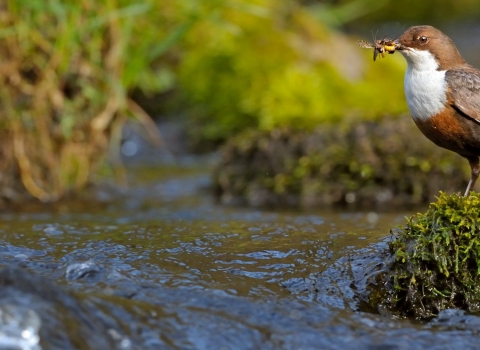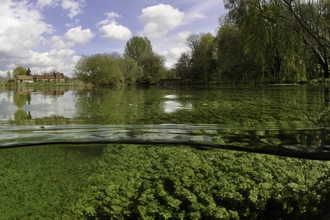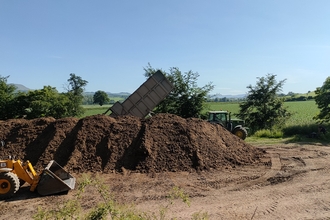Rivers are our lifeblood
Wales has lost a deeply concerning amount of wildlife, including species such as turtle dove, driven by habitat damage and loss. Many people no longer know or remember just how rich and diverse with abundant wildlife our rivers and hills can be. Not only are rivers wonderful habitats - healthy, naturally functioning rivers provide clean water, mitigate flooding, and store carbon.
We already know that nutrient runoff from the manure created by intensive livestock farming, as well as soil erosion, are the primary causes of the spread of algal blooms and the rise of Phosphorous that are devastating the river’s ecosystem. Likewise, we know what an important role farming plays in our local economy and society and what opportunities it affords to help Wales address its targets around nature’s recovery and climate change.
That’s why we want to see a new Agriculture (Wales) Bill which supports farmers to do their best for wildlife and significantly improves the state of the River Wye catchment, therefore working towards meeting Welsh Governments commitment to no net loss of nature and to ensuring 30% of land is managed for wildlife by 2030. We need to restore and bring back nature, not just stem the loss. Bringing back abundance and richness to people’s lives. To drive this, we want to see an increase in payment schemes which support farmers in meeting these regulations and commitments. The new Agriculture (Wales) Bill provides us with the unique opportunity to deliver this essential change.
We urge Welsh Government to commit to the following actions:
- Ensure the Agriculture (Wales) Bill stops the use of imported feeds, which are the most significant source of imported nutrients such as Phosphorous into the catchment, and are devastating wildlife on the Wye
- Ensure the Agriculture (Wales) Bill develops opportunities to diversity food production, to give farms another viable income stream
- Ensure the Agriculture (Wales) Bill supports farmers in transitioning towards sustainable, regenerative, organic, farming which follows the principles of agroecology to create greater ecological diversity and farming resilience, including an increase in funding to support compliance with regulations and commitments.



